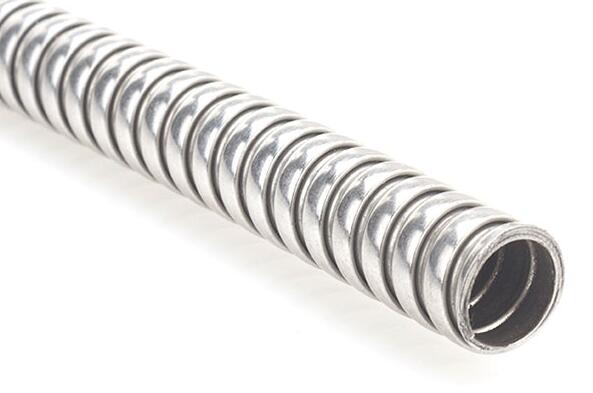A Comprehensive Guide to Flexible Metal Conduit: Types, Installation, and Uses
Flexible metal conduit is a versatile solution for various wiring applications, providing flexibility, durability, and safety. In this comprehensive guide, we will delve into the world of flexible metal conduit, exploring its types, proper installation methods, and the wide array of uses it serves.

Flexible metal conduit, often referred to as FMC, is a conduit made of a flexible metal material such as steel or aluminum. It is designed to protect and route electrical wires and cables in both commercial and residential settings. Let's take a closer look at the different types of flexible metal conduit available:
Types of Flexible Metal Conduit
Flexible Steel Conduit (FSC): This type of conduit is constructed from interlocking steel strips. It offers excellent strength and is suitable for heavy-duty applications.
Liquid-Tight Flexible Metal Conduit (LFMC): LFMC is designed to be waterproof and is commonly used in outdoor or wet environments. It features a flexible PVC coating that provides protection against moisture.
Flexible Aluminum Conduit (FAC): FAC is a lightweight alternative to steel conduit. It is corrosion-resistant and suitable for various indoor applications.
Reduced Wall Flexible Metal Conduit: This type of FMC has a thinner wall, making it more flexible and easier to bend. It is ideal for installations that require tight bends.
Installation Guidelines of Flexible Metal Conduit
Proper installation of flexible metal conduit is crucial to ensure the safety and longevity of your electrical wiring system. Here are some essential installation guidelines to follow:
1. Planning and Measurement
Before installation, carefully plan the route of the conduit and measure the required length accurately. Ensure that you have the necessary connectors, straps, and fittings.
2. Cutting and Bending
Use appropriate tools to cut the conduit to the required length. When bending the conduit, follow the manufacturer's recommendations to avoid kinking or damaging the material.
3. Securing and Supporting
Install conduit straps or hangers at regular intervals to support and secure the conduit along its route. This prevents sagging or excessive stress on the wires inside.
4. Fittings and Connectors
Use compatible fittings and connectors to join sections of conduit and make connections to electrical boxes and devices. Ensure that all connections are tight and secure.
5. Grounding
Properly ground the flexible metal conduit to provide a safe path for electrical faults. This is essential for ensuring the safety of your electrical system.
Applications of Flexible Metal Conduit
Flexible metal conduit finds applications in a wide range of industries and scenarios, thanks to its adaptability and durability. Here are some common uses:
Commercial Wiring: FMC is frequently used in commercial buildings to protect electrical wiring in exposed or concealed locations.
Residential Wiring: It is also employed in homes, particularly for wiring that needs to navigate tight spaces or unusual angles.
Industrial Settings: FMC is a staple in industrial facilities, providing protection for wiring in areas with heavy machinery and equipment.
Outdoor Installations: Liquid-tight flexible metal conduit is ideal for outdoor installations, protecting wires from moisture and weather conditions.
Hazardous Locations: In areas where flammable gases or vapors are present, explosion-proof flexible metal conduit is used to prevent the risk of fire or explosions.
In conclusion, flexible metal conduit is a versatile and essential component of electrical installations. By understanding its types, following proper installation procedures, and recognizing its various applications, you can ensure the safety and efficiency of your electrical wiring system. For any electrical project, always consult with a qualified professional to guarantee compliance with local building codes and safety standards.


Comments
0